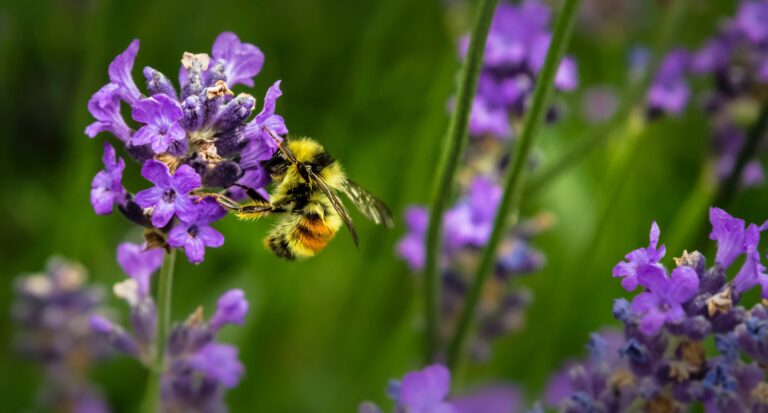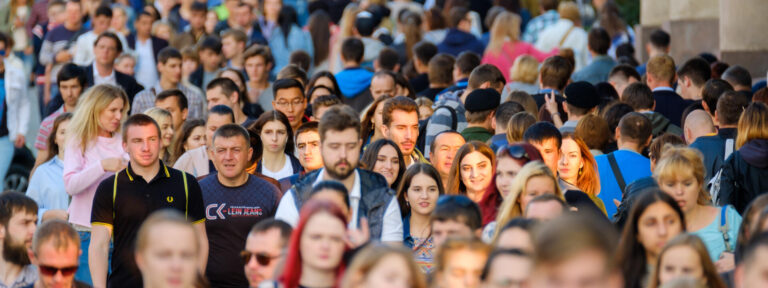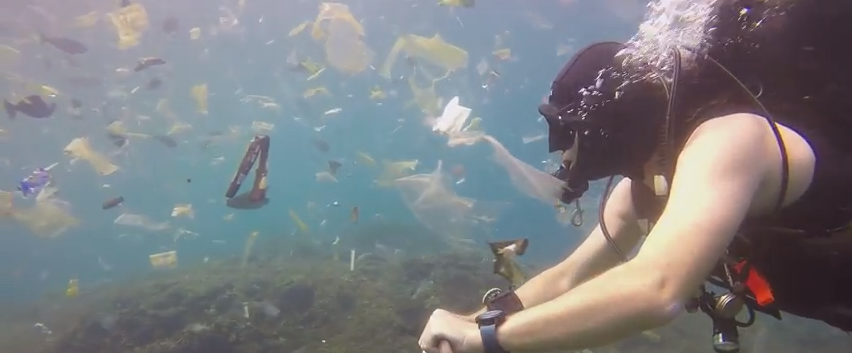
Plastic pollution – viral video diver talks to PM
When British diver Rich Horner captured film of himself swimming through plastic pollution off the coast of Bali, he didn’t expect it to be viewed millions of times. After posting it on Facebook for his friends, however, it was spotted by international media and quickly went viral. Long deeply concerned about the environment and population, Rich contacted PM to let us know he is a supporter and to offer us use of the video to spread the population message.
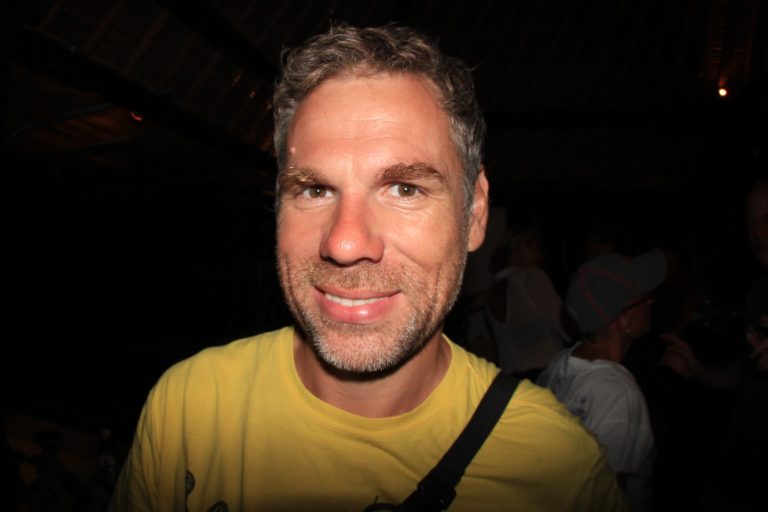
We spoke to him this week to find out more.
The Gift of Plastic
On Filming
I was just going out on my friend’s boat, hopefully to film the manta rays. But as we pulled into the bay, at the famous Manta Point dive site, we immediately saw the big slick, which was the usual mix of organic matter and plastic trash that is not uncommon at one of the other manta dive sites during the wet season, but really not at this site… And it was also huge! Genuinely much bigger than we’d seen before. So when we jumped in, I knew I was going to try and film it, to document it, to show to my friends, but also to give to the researchers that work on the island, who work with the local university, researching the microplastics and the manta rays.
After seeing only three or four mantas and spending 10 minutes of the dive swimming around just under the floating plastic, and next to the big cloud of plastic bags, I knew the footage could hopefully be pretty impressive, alarming and useful.
How did your video end up being seen so widely?
Obviously, it was largely timing, with plastic being in the global media a lot over the last few months, especially in the UK, after your patron Sir David Attenborough‘s, Blue Planet 2 had aired. With the mind-blowing footage of the beautiful underwater worlds and creatures and finishing with the very stark reminder/lesson on how damaged it is now and how plastic was such a big part of this. With David’s own report of now seeing plastic in the sea, everywhere he’s gone this time.
The footage itself caught people’s attention, I think, because I filmed it doing a ‘selfie’. This meant that it showed a human being swimming not just next to, but through the plastic, lots and lots of plastic. I also filmed a lot normally too, close to the plastic, but that footage just didn’t seem to have the same impact at all.
Scuba diving in general does open people’s eyes to the underwater world, showing them and teaching them what’s under the reflections, the fish, the coral, the whales… and that day, the plastic.
So getting back home, I just quickly edited 3 clips together, added the date and location, and posted it on Facebook, so that my dive buddies and friends around the world could see it…Really not long after posting, the number of views grew quite big!
So I frantically added a couple of paragraphs of explanation notes… Then I got my first requests to use the footage from some NGOs, people doing fish talks, and also a university professor in Germany. I then sat down and spent ages writing the extensive explanation notes that you can see in the original post today. Preparing them was a very educational process!
What was it like when it went viral?
The next day, the views rolled over 500,000 and I started to get lots and lots of news media usage inquiries. Plus, probably 1,500 friend requests!
It has been totally overwhelming. I thought the footage I put up did look a bit powerful, but I only thought my mates and fellow divers would be seeing it. Not tens of millions of people.
As it spread, I did suddenly realise that I had the responsibility to make sure the story was told accurately and not sensationalised if possible. Bali had already had a bad rap from the news media a few months back, about the ‘garbage emergency’, the huge amount of trash that had washed up onto its famous tourist beaches of Kuta, Seminyak and Jimbaran. But it also suffered a huge amount after Mount Agung, Bali’s main volcano, woke up and started puffing ash everywhere last year from September onwards.
This had a massive impact, partly due to some unfavourable coverage by some of the international news media. So many people just cancelled their holidays to Bali, resulting in a lot of lost business, income and jobs. So, this meant that just basking in the millions of views wasn’t possible, so I’ve accepted many interviews, met with government officials, and given my video to many NGOs, students, researchers, etc. And yesterday, it was even shown at the International Marine Debris Conference in San Diego! It’s been a tiring, busy, crazy 10 days…. But, people are connecting to it, seeing it, understanding the problem a bit more because of it. So I’m immensely happy and proud about that.
Have you seen other evidence of human impacts on the seas?
We see a lot of evidence. Too much.
Ask any diver, especially ones that have dived in a few different places, and they’ll tell you of some sad things they’ve witnessed… Coral reefs, which we are diving on here, when they get damaged, that damage is very visible, and that damage takes years, decades to repair. So often the damage rate is far faster than the repair rate. I have been diving in some places in the world where the reefs really are in a bad state, some sites are just dead, only rubble, with almost no life, some are showing very recent damage and an irreversible decline.
With the last El Niño weather event, Indonesia and its neighbours saw a rise in water temperatures, which this time, pushed it over the limit of what the corals can endure. So like the Great Barrier Reef in Australia, we also saw quite a lot of coral bleaching. But, thankfully, because of the currents passing through Indonesia, cooler waters came and almost all of our corals were revived before they died off. Sadly this wasn’t the case on some of the GBR.
Obviously, the plastic is visible in the wet season here, but we only see it passing – some get snagged on the reef, but most are just on their way out to the Indian Ocean. We’re also witnessing lots of physical damage, much of it from the rapid expansion of tourism on and around the reefs. And then there’s the reduction in marine life. For the most part, where we are, the fish life is actually really good, apart from a very distinct lack of sharks, which are absolutely key as caretakers of the reef, controlling the different levels of the food chain under them and ultimately the health of the coral reef.
With the lack of sharks, the coral reef is thought to be in danger. Which will then affect the fish stocks that the other fishermen are hoping to catch. As the reefs over here are still really quite healthy, we hope that they are more actively protected, as the local’s food and livelihood are at stake.
Are you personally concerned about population growth? Why?
Very much so. And actually, it was again due to Sir David Attenborough. He made a BBC Horizon Special in 2009 entitled: ‘How Many People Can Live on Planet Earth?’ His first words after the opening tiles were to tell us, that in his lifetime, the population of the world had more than tripled! In just 83 years!
That statement should make any human shudder, and it did me.
I’d possibly picked up on population being an issue before, but watching this, totally and memorably cemented our overpopulation as being the root cause of almost every big issue we face today.
Obviously, as a diver, I knew of the dwindling fish stocks, as so many people want/need to eat fish… That farmland was scarce, so battery farming was the only way to supply enough meat people for people to eat, clearing rainforests was needed to grow more crops. That water was so scarce in many countries, that crops failed and the people deserted their farms and moved into the cities, flooding them, creating sadly huge problems.
I gather that the estimate for the carrying capacity of the Earth, such that it could sustain everyone with a typical European lifestyle, is between one and three billion. So again, in Sir David’s lifetime, we’ve managed to triple the population above that sustainable level. Even stopping the growth, still leaves us three times overpopulated.
Has that affected your personal choices about having children?
It confirmed it. I think I’ve always known I didn’t want kids. They’re just not for me. So much responsibility, and a fear I’d probably be bad at it! Plus so many other factors too. But then learning about the overpopulation issue, it really does make it easy to confirm 100% that I wasn’t going to have kids.
So knowing that, in 2010, I actually decided to have a vasectomy. And after some research, I learnt of the newer ‘No-Scalpel’ method, how quick it was, how cheap it was, and obviously how painless it was said to be… So I found a surgeon in Auckland, New Zealand, where I was going to be backpacking for a while and made the appointment.
On the day, after a thorough counselling session, confirming that I was certain “my family was complete”, I had the procedure. It only took 12 minutes, and thankfully, as they had said, it genuinely did not hurt!
Just a few days of not lifting heavy weights and some slight swelling and some interesting colours, I was back to normal. After 2 negative sperm counts 4 months later,
I was confirmed sterile. And was very comfortable knowing so.

Do you think there needs to be more discussion about population and its impact on the environment?
Absolutely. It is actually frustrating. As I do have more exposure than most on some of the issues, being a diver, and also knowing and helping marine researchers quite often, you simply can’t separate the problems from the root cause of overpopulation. Every solution to every problem would be so much easier with fewer humans, and probably useless, pointless with a growing population. Also, continually learning more and more about the issues of climate change, and that the reserves of water, certain minerals, like phosphorous and the fish stocks, etc, etc, could potentially run out quite sharply, which could lead to some much, much bigger problems, that could affect us all, wherever we live.
But, as I’ve learnt about the overpopulation issue, I have also learnt about the potential solutions and fixes. Many of which are not new at all, with success stories from Thailand, Kerala in India, and so many others, some using the basics of education, empowerment of women, access to contraception, etc.
Birth rates fall without any need for any strict ‘One Child Policy’ that no one should ever want. And with a global effort, we could really be on our way back down towards a sustainable 1-3 billion population by the end of the century! The exponential growth, that’s given us the over three times increase in Sir David’s life, can be reduced by the exponential decline if we were to choose to have only 1 or 1.5 kids say, in a similar number of years. After hearing these, and many, many more explanations of the issues and possible solutions, you realise that it’s not a hopeless cause at all. And by starting the discussion now, we can start to act and actually see results in just a generation or two.
On Population Matters
The work that PM has done has been amazing so far, and also of another organisation I’ve been following, World Population Balance, who have made an excellent podcast series, with so much information and data from the experts and academics that actually study population issues. Which also recently included an excellent interview with your own director, Robin Maynard.
Having resources like these, which hopefully the world can find and read/listen to, will speed up the conversation and get things moving!
Join us
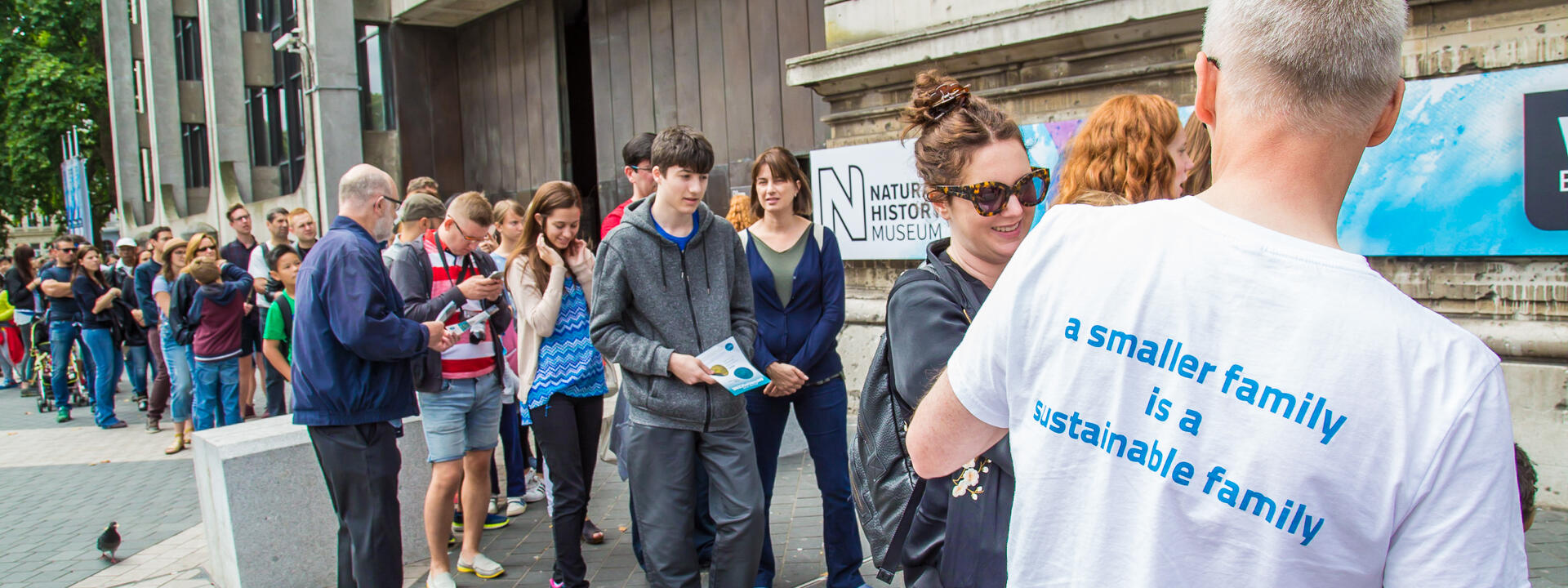
Join Rich and thousands of other people across the world concerned about population by becoming a member. The more voices we have, the stronger we are.

